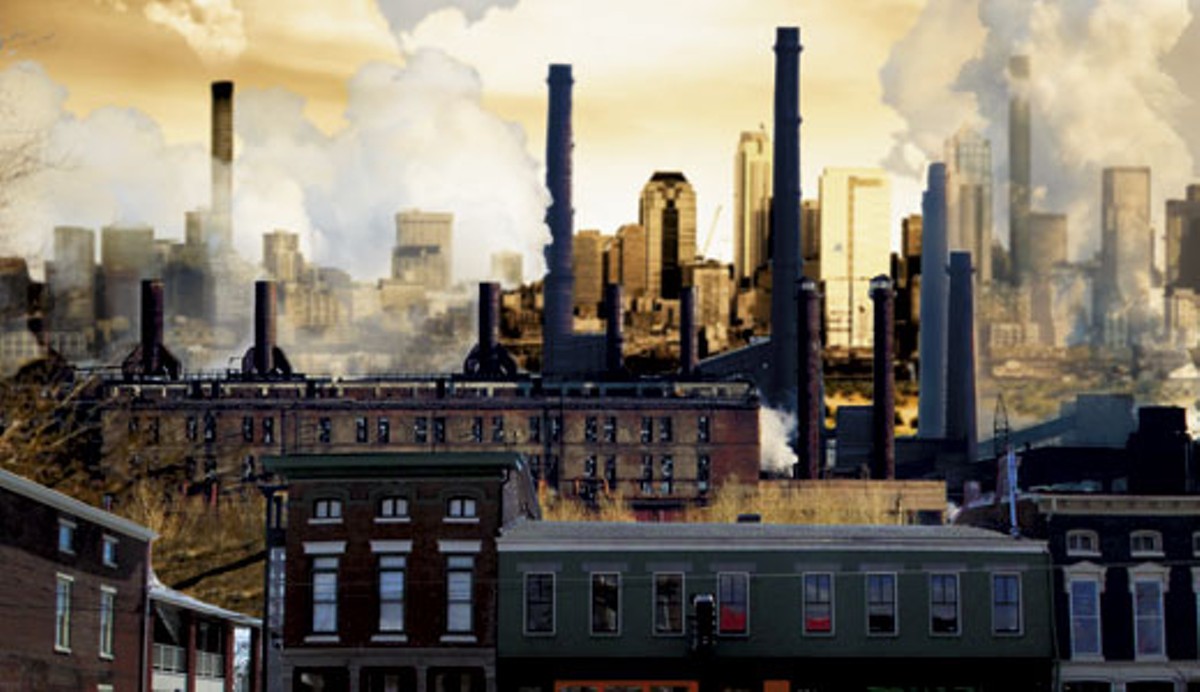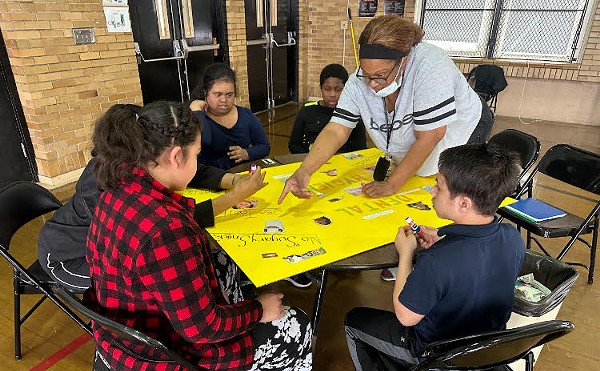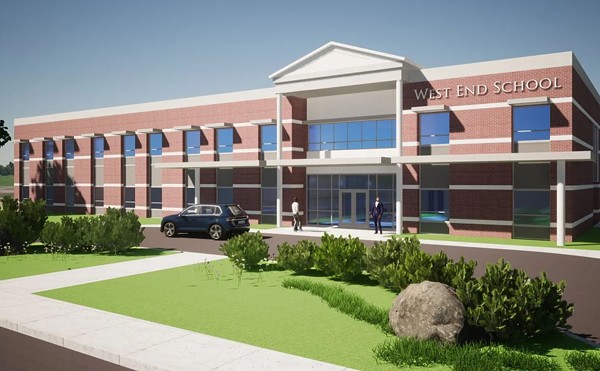Mayor Greg Fischer and several Louisville business leaders held a press conference at the corner of Bells Lane and South 41st Street on Tuesday to herald the next phase of “cultural renovation” in west Louisville’s Rubbertown neighborhood.
The area — known best for a mix of environmentally hazardous chemical plants and low-income housing — is undergoing a massive renovation effort to attract upscale businesses and higher-income “creative class” residents. As part of that effort, the community is being re-branded as “New Rubbertown,” or “NuRu.”
“Just as ‘NuLu’ has swept away urban blight on East Market and replaced it with upscale galleries, lofts and fine dining, today marks a similar new chapter for Rubbertown,” said Fischer.
A combination of private investors and public money is funding the “NuRu” project, which aims to repurpose abandoned industrial plants and vacant housing in Rubbertown, stretching from Chickasaw Park all the way south to LG&E’s Cane Run power plant.
The state also has pitched in $10 million for streetscape improvements, including new lighting, sidewalks and street furniture to accompany the new high-end businesses, art galleries, boutiques and loft apartments.
Last month, Marcus Hawthorne opened his new business — which doubles as a yoga studio and wine market specializing in rare imports — at the corner of Campground Road and Ralph Avenue. While business has been slow so far, he says NuRu will soon be the next “it” neighborhood in Louisville.
“I totally think that NuRu could be the next Portland,” Hawthorne tells LEO, later clarifying that he meant the hipster-laden Oregon city, not the poverty-stricken and neglected northwest Louisville neighborhood. “The only obstacle I can see is the overwhelming stench of chemicals, and the constant threat of a plant explosion turning our street into a giant fireball or HAZMAT zone.”
The overpowering smell of chemical toxins from the neighboring DuPont and American Synthetic Rubber plants does not bother Nathaniel Langston III, a bearded recent college graduate with a healthy trust fund who moved into a NuRu loft apartment converted from an industrial warehouse.
“I used to live in Butchertown, so I know all about living with the odors of a gritty urban environment,” Langston tells LEO, adding that this anecdote has helped him connect and assimilate with his working-class neighbors.
Despite the influx of new businesses and housing, reaction among the locals already living in Rubbertown are decidedly mixed.
John Lang, who has lived on Algonquin Parkway for more than 30 years, notes that the area is suddenly receiving public infrastructure improvements after years of neglect.
“This road used to be full of potholes, but all of a sudden there are city workers out here doing construction day and night,” Lang says. “I guess we really matter now.”
However, the rising property values in the area have resulted in a dramatic increase in the price of rental units, forcing many local residents to move out of the area. Additionally, some say the new retail isn’t a good fit for the neighborhood.
“It’s nice to get some new businesses around here, but it’s not like I can afford to pay $750 for a genuine pre-Columbian stone bloodletting bowl, or $60 for an entrée at the new French bistro around the corner from here,” says Danny McElroy, who is currently struggling to cover the costs of his mortgage and health care for his wife, who has become ill.
Such concerns are common among locals, including Wanda Brown, a longtime resident on Kramers Lane.
“I don’t want to sound overly critical, because all of these new art galleries and all of this money going to roads and streetlights are nice,” Brown says. “But it would be even better if we knew that the chemicals and emissions from the plants surrounding us weren’t slowly killing us, one day at a time.”
Despite the chronic and immediate environmental threats in the neighborhood, as well as the economic hardships that the area has faced for a generation, some locals say the “NuRu” development will ultimately leave the area in a better place.
“All of this investment in our neighborhood — repurposing vacant property and improving our infrastructure — is long overdue, and I think that in 10 years Rubbertown is going to be known for much more than just a chemical wasteland of poverty, poor health and struggle,” says Esther Jackson of Chickasaw.
“It just makes me wish that I didn’t have this rare form of blood cancer, so I’d be around to see it happen.”
*This story is part of LEO's Fake Issue.






